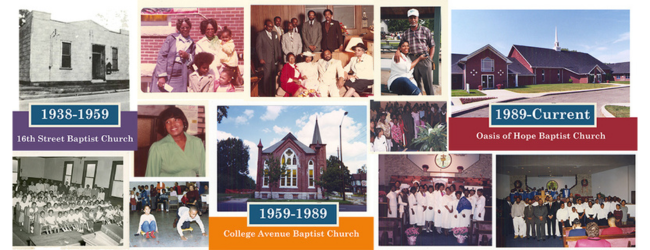Celebrating a Living Black History: Digital Indy Chronicles History of Oasis of Hope Baptist Church


The Indianapolis Public Library has digitized the history of Oasis of Hope Baptist Church, a church whose rich history has been a staple of Indy’s Martindale-Brightwood community since it opened its doors in 1938 as 16th Street Baptist Church.
Around 4,000 photographs, newsletters, documents, and oral histories of the church can now be found on The Indianapolis Public Library’s Digital Indy website, in the Community tile. Collections on Digital Indy are collaborations between The Indianapolis Public Library and community organizations, and by scanning these organizations’ materials, The Library highlights the history and culture of Indianapolis.
The Indianapolis Public Library aims to digitize the history of additional churches and houses of worship in the future.
“Oasis approached The Library about being included,” said Natasha Hollenbach, manager of digital projects at The Indianapolis Public Library. “We don’t have any other church histories digitized. This inaugural project is the first step to begin filling a serious gap in our collection. This process has been made possible by how much the entire congregation helped - from active participation like bringing things in to digitize, to participating in oral histories, to helping identify people in photographs, and just being friendly when we showed up for committee meetings and scan-a-thons. It really is the close collaboration between the Digital Indy staff and the Oasis of Hope congregation that is going to set their collection apart.”
The church has described the digitation as a “Celebration of Living Black History.” Shirley Alexander of the Oasis of Hope History Committee at Oasis of Hope Baptist Church is thankful that The Library would dedicate time to preserving the legacy of African American churches.
"With what we know is being done with the revising of history, this couldn’t happen at a more poignant time,” said Alexander. “High praise to The Library, its board, and the director, for even conceptualizing this idea. The idea of helping churches digitize, organize, and identify history is monumental.”